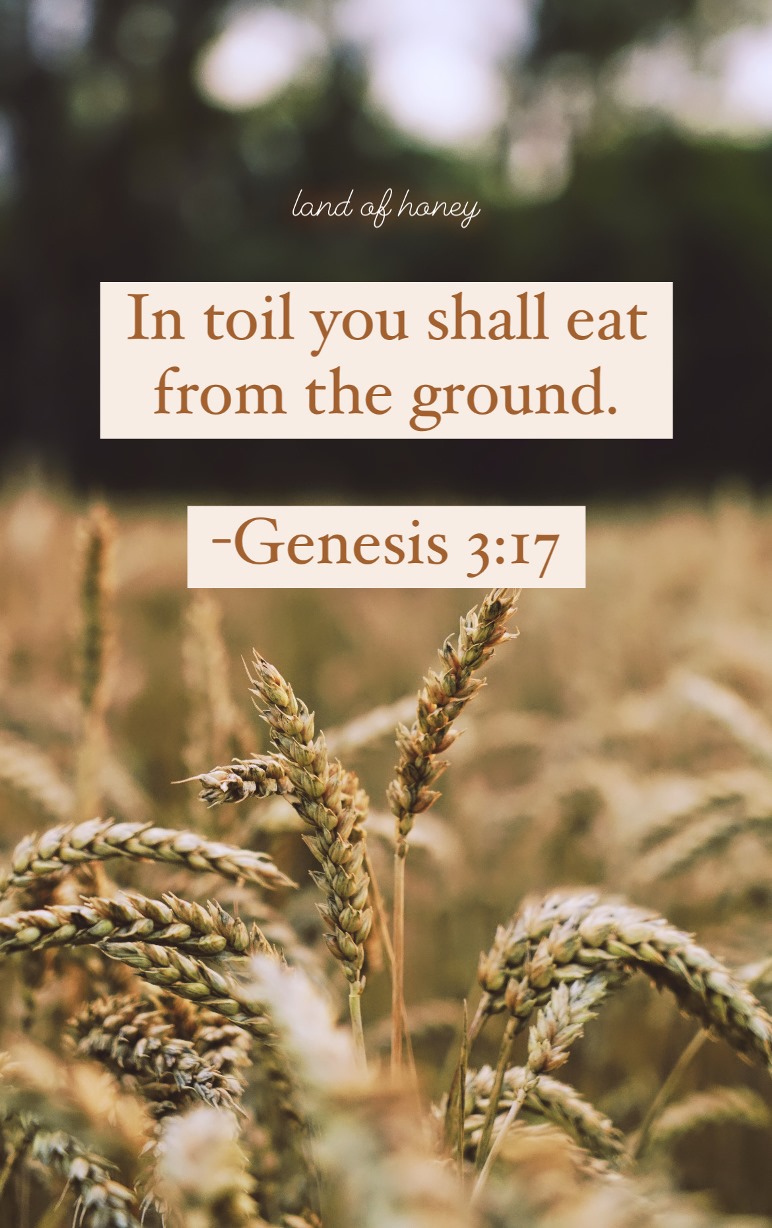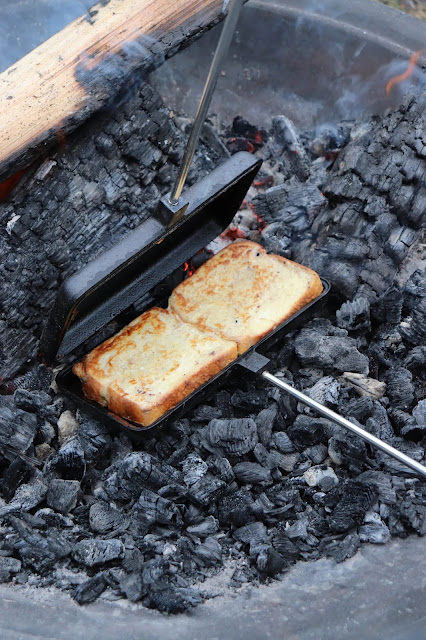As the title says, this post talks about rape. I do my best to not be unnecessarily graphic, but obviously this is a sensitive topic for many. Please use caution and only delve in when you are emotionally in a good place to do so. If you have been assaulted, I hope you know that God's heart aches for what you've gone through.
This post talks about what the Bible says about rape. My hope is that this will clear up some incorrect assumptions that have been made about Scripture on this topic, and that we will be better able to see the character and love of God even through this overview. Every once in a while I hear from someone that suggests that honor-killings are part of the Old Testament, or that girls who were raped were stoned to death, and I face palm. NO. This is not the Word of God. We will look at what the Bible actually says about sexual assault, and we will see God's justice in that. We will also see that many of the notorious "rape laws" of Deuteronomy 22 aren't about rape, but focus on violations in marriage.
Who was raped in the Bible?
Some of the women raped in the Bible include Dinah and Tamar. Dinah was the daughter of Jacob and Leah. Her brothers Simeon and Levi were so angry about how she had been violated, that they wound up killing all the males in the town that the perpetrator was prince of (Genesis 34). Tamar was a princess of Israel as a of daughter of King David, and his wife Maacah. She was raped by her half-brother Amnon, after her father had unknowingly sent her into a dangerous situation. Two years later, Tamar's brother Absalom had the perpetrator killed (2 Samuel 13). Judges 19 records an unnamed woman being brutally gang raped and murdered. It's also possible that Sarah endured similar violation at the hands of pharaoh.
Biblical instructions for dealing with rape are found in Deuteronomy.
If a man happens to meet in a town a woman pledged to be married and he sleeps with her, you shall take both of them to the gate of that town and stone them to death - the young woman because she was in a town and did not scream for help, and the man because he violated another man's wife. -Deuteronomy 22:23-24
But if out in the country a man happens to meet a young woman pledged to be married and rapes her, only the man who has done this shall die. Do nothing to the woman; she has committed no sin deserving death. ...For the man found the young woman out in the country, and though she screamed, there was no one to rescue her. -Deuteronomy 22:24-27
If a man happens to meet a virgin who is not pledged to be married and sleeps with her and they are discovered, he shall pay her father fifty shekels of silver. He must marry the young woman, for he has violated her. He can never divorce her as long as he lives. -Deuteronomy 22:28-29
Depending on how we read these instructions, they can sound archaic and draconian. They used to make me angry. If I get raped then I have to marry the guy and can never get divorced?! Women were stoned for this?! I often hear from people who just can't embrace the Old Testament because of things like this. A lot of people read it like God wants an honor-killing, and if a girl is raped then she should be killed. And if you read it like that, then yeah, it makes sense to be upset with God because nothing is just or fair or kind about that.
But that is not the meaning of this passage!
The first thing we need to recognize 'rape' is not the literal meaning of the word that is translated variously as rape, lie with, or sleep with. The word used to imply sex is sakab (Strongs H7901), which means to lie with or sleep with. This is used similarly to the English phrase, "sleep with," which is generally a euphemism for sex, but can also be used literally. When Samuel lies down in the Tabernacle (1 Samuel 3:3), he is lying down to sleep, nothing sexual is meant. Sakab in itself does not denote rape. Rachel used this word when she acquired mandrakes, it was what Potiphar's wife said when she tried to entice Joseph, and Leviticus uses this word to describe intimacy in marriage. But sakab is also used in the stories of Dinah and Tamar being raped in Scripture. We have to look at the context of the verses to see if the act was consensual or forced.
This means that Deuteronomy 22 addresses various sexual encounters, and not just rape!
When most of us think of rape, we think of someone going about their business until a stranger appears and assaults them. But it's actually more common for rape to be perpetrated by a friend, date, or boyfriend than for the victim to be grabbed in a dark alley by an unknown assailant.
In my work with teenagers and young adults, it is concerning how often young men are surprised by allegations of rape. Frequently young men are shocked when a friend or girlfriend accuses of them of rape, after what they believed was consensual sex. It's not that there wasn't sex and someone is falsely accusing them. It's that there was sex that one person thought was consensual, but that the other didn't. The same sexual act was experienced differently by the girl and the guy. She felt she was being raped, while he had no idea.
Obviously not all sexual assault is like this - some people are attacked by strangers (we'll get to what the Bible says about that). But it is alarming how often this happens. And we can blame it on poor sexual education, bad morals, the patriarchy, movie culture, or whatever, but in this case we aren't so much concerned about why this is happening, as with the fact that YHWH made provisions to prevent this.
Why does it matter if the woman screamed or not?
God has always intended for his people to know his words and instructions like these. These directions were given to all his people. This means that all his people had clear instructions about what consensual sex would look like. Men knew that if a woman was screaming and he pushed sex on her that was a capital offense that he could be put to death for. Women knew that if they didn't make it clear they weren't okay with it (by screaming), then they would be held accountable as well. With this instruction, there would be no surprises after the fact. Each party knew what was happening.
I believe the provision of screaming was so that men knew forcing sex on someone who was resisting was absolutely off-limits. It painted a clear picture of what, "No," looks like, and also prepared and empowered women about what to do should they find themselves in those circumstances. We might feel like it should be obvious what constitutes rape or consent, but I can attest from talking to hundreds of teens (and adults) that it is not clear to everyone. If the simple 'rule of scream' were laid out today, many people would benefit from that, and much trauma and heartache could be avoided.
Now the Bible is not saying here that if you were raped and didn't scream because of shock or fear then you are somehow to blame for the assault. NO. If you were raped, you are not to blame! This stipulation was intended to create a culture of clear guidelines for consensual sex. We do not have that culture today, and many suffer trauma because of it. For many people, seeing physical relationships played out on television and in movies is their only information about what the moments leading up to sex look like. How many movies have you seen where a first kiss escalates to clothing coming off within ten seconds? When the people involved are not even in a relationship? I would say sex is portrayed like that more often than not in movies. The dysfunction of this is a massive disservice to our culture.
Because of the stipulation about screaming, the implication is that if you were not actively resisting you are prepared to be accountable for this action. Again, that's not to cast blame on victims who were pressured into sex and threatened into silence. Most women and girls today have never been told what to do if they are assaulted or if a boyfriend takes things further than they would like. If they've heard anything it's typically about self defense (i.e. the stranger in the alley), which offers limited help for those smaller and less strong than the attacker.
Notice that the Bible doesn't say, "If a girl is raped, then stone her"! It gives different instructions for different circumstances.
We can see from the examples in Deuteronomy that the only case where a woman was to be stoned was if she didn't scream, it happened in town, and she was engaged. These circumstances indicate that the sex was consensual, and, therefore, that she was committing adultery. In Scripture, the start of a marriage is at the engagement. If an engaged person chose to sleep with someone else, both parties were to be stoned for adultery - provided the act had been witnessed by two or three people who would testify to this (Deuteronomy 17:7). There are other posts where we tackle the topics of stoning and adultery on this blog which I'll leave links for at the end of the post if you want to know more about that. For what it's worth, the Bible doesn't record anyone being stoned for adultery.
The element of this act happening in town further points to the woman's consent. People were in much greater proximity to each other during Bible times, with larger families living in smaller homes, and no one had earbuds in or had the radio blasting. We should also remember that homes and dwelling places with multiple rooms were not common until the past two hundred years of recent history. The privacy of multi-story homes with soundproof walls did not exist in Biblical times. Most people throughout history have lived in one room homes or tents, which meant that sex was something that happened in the dark that you tried to tune out. It would not have been a mystery who was sleeping with whom in your household, or if they were a willing participant or not. The implication here is that help was available if it was wanted. If the woman screamed someone nearby would hear and come to her aid. Note that the example in Deuteronomy 22:23-24 there is no suggestion of the sex being forced, unless the woman cries out for help. By not crying out when there were people around to help, points to it being a consensual encounter. Stoning absolutely was not to happen to someone that was raped.
Let's examine the the different circumstances Deuteronomy 22 gives.
-The engaged woman in town who did not scream from verse 23.
As we've discussed, the hypothetical unmarried couple in this example was participating in consensual sex, and thereby committing adultery. If there were two or three witnesses to this then both the man and the woman could be stoned. Note that this is different from culture's that practice honor-killing where an innocent victim of rape is murdered while the perpetrator goes free. That is not God's heart at all! The only time a woman was to be theoretically put to death was for consensual adultery with multiple witnesses. There is no record of this happening in the Bible.
-The engaged woman raped in the countryside from verse 24.
In this case, with the assault happening in the countryside the implication is that there were no witnesses, and no one around to come and help the woman. What happens in this case, according to the Bible, is that the woman is to be believed. "Do nothing to the woman; she has committed no sin deserving of death." She is not punished at all, even if she is engaged, since she did not consent. This meant that if an unmarried woman became pregnant after being raped, or if rumors spread that she had slept with someone, others weren't to decide that this was consensual and stone her. In this we see YHWH providing security for women, in that if this happened to them they were not to be harmed or punished in any way.
-The single woman who is violated.
This is the one that used to bother me the most. So if you get raped you're just stuck with the guy who hurt you? But once again we see the sakab word here and nothing in the text suggests that rape occurred. Also while the man is obligated to marry her, we don't see that she has to marry him. (Marriage is consensual in Scripture.) Note that neither Dinah nor Tamar were married off to their rapists. We see the man being held to an extremely high standard of sexual conduct, and if he was going to pressure a girlfriend into sleeping with him or coerce a single woman to do so, he had to be prepared to pay a fine, and marry the woman without ever divorcing her. This was to ensure the woman's livelihood if a male took advantage of her. We see a modern variation of this played out with 'shotgun weddings.' Note that the woman in question does not necessarily have to accept the marriage offer, but a law like this naturally would have lead to all members of society exercising more caution before getting into bed with someone, and fewer vulnerable young women being taken advantage of.
I believe that these laws were intended to be protection for both women and men. The rule of scream ensured that women would know what to do in a situation where they were being pressured to sleep with someone or physically forced to do so. Women knew that if they were raped, then their side of the story was to be believed. Men better understood boundaries and would have been protected from false accusations of rape. Single women knew that if they slept with a man he wouldn't have the option to leave her with no means of financial support. And both parties understood if they slept together, they needed to be prepared for marriage.
In most of these examples, the implication is that the woman and man knew each other, and sex was consensual. But what about someone who is just randomly attacked and raped? We see the answer in Deuteronomy 22:26, "Only the man who has done this shall die. Do nothing to the woman; she has committed no sin deserving death." Rape is so abhorrent to God, that he says the perpetrators should be put to death! Think of the cultural implication of that. Rape would be much less common if would-be perpetrators understood that they could be killed for this offense, instead of risking a two-game suspension from football, for example.
You may have noted that in that example the woman was engaged. But what if she wasn't? Again she would not be harmed. Exodus 21:16 tells us that kidnappers should be put to death. If someone is abducted or forced into sex, that would be a form of kidnapping. Kidnapping is also abhorrent to God, and the perpetrator would be put to death, not the victim.
What does the Bible say about rape? "Do nothing to the woman...she is innocent."
I hope this post helps to shed light on the fact that the Bible absolutely never stones or kills victims of the horrendous crime of rape. We see through the above Scriptures and the Bible's high standards for sexual conduct, that God wanted to create a society that eliminated rape as much as possible.
Related posts:
Biblical Law and the Woman Caught in Adultery
Stoning in the Bible
The Significance of Sarah in the Bible











.JPG)
.JPG)
.JPG)
.JPG)
.JPG)
.JPG)











.jpg)








.PNG)
